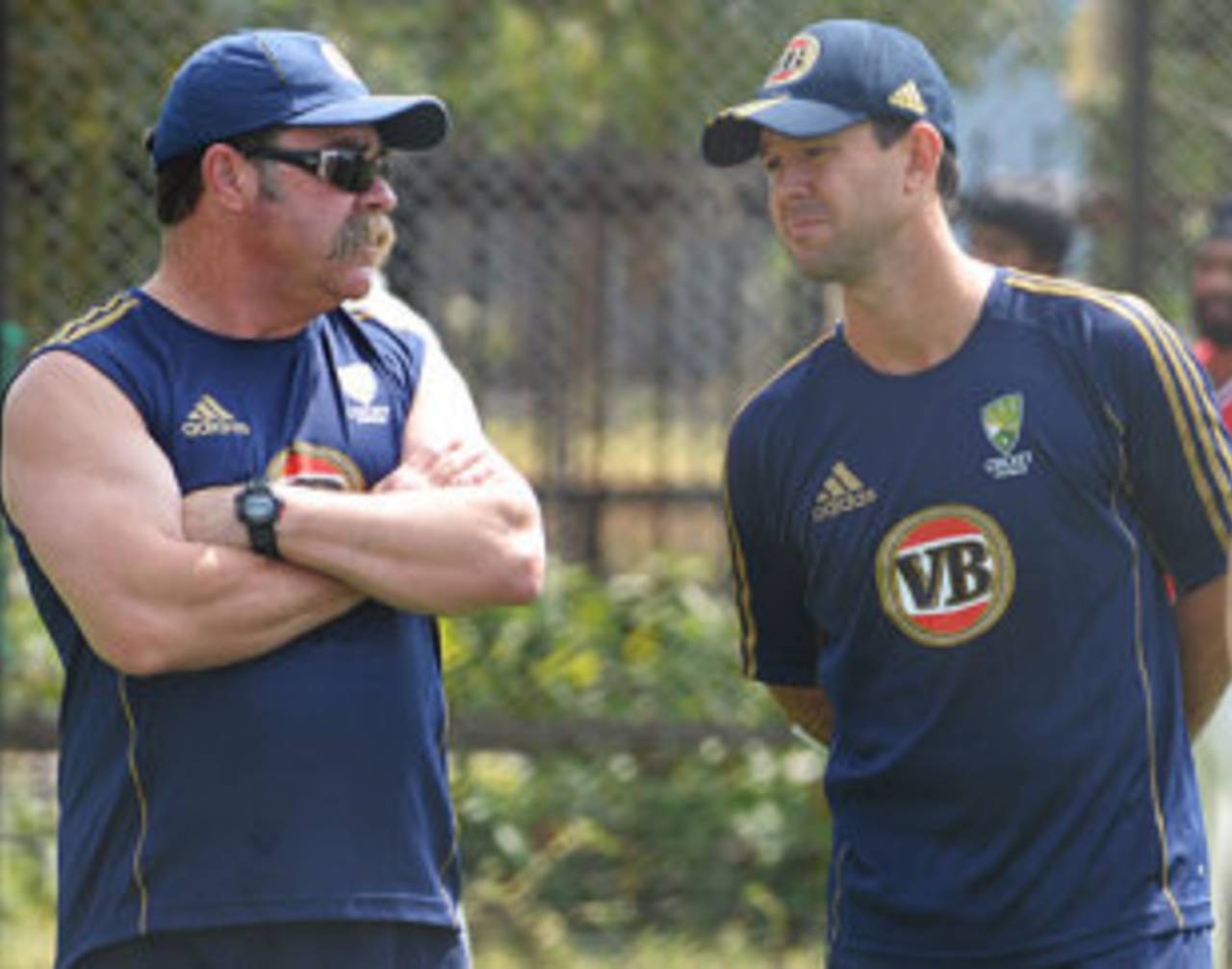When
David Boon opened the Australian batting with Geoff Marsh, his job was to play a few shots and push things on a little more than his obdurate partner.
Years later, with a similarly stubborn figure as chairman of selectors in Andrew Hilditch, Boon has
quit his post on the national panel and in so doing helped to bring swifter change to the system than might otherwise have been the case.
The circumstances, and the timing, are apt. Boon's portly figure is universally respected and renowned, positioning him ideally for the ICC match referee's role, in which he will have to make unpopular decisions and perpetuate the rule of law in a game where money and political expedience have too often blurred the priorities of its governors.
Boon's selection replacement will be hotly debated, and the modest financial return (about Aus$40,000 per year) will rule out many of the game's more fiscally-minded. But by his exit Boon has offered the chance for the selection panel to regain a more balanced look, as the ideas of former bowlers or more laterally-minded batsmen can be considered. Merv Hughes was removed from the panel to make room for Greg Chappell in late 2010, turning selection meetings into an exclusively top order club.
In that vein, Boon's influence reflected his batting, as a calming presence and an advocate of continuity of the kind that his generation had enjoyed under the stewardship of the then selection chairman Lawrie Sawle, the coach Bob Simpson and the captain Allan Border. It was not insignificant that he was the selector on tour when Australia enjoyed their most noteworthy result of recent times, defeating South Africa in South Africa in early 2009.
The sight of the inscrutable Boon, a decorated veteran of two wildly successful England tours in 1989 and 1993, might have been useful in the strange atmosphere that enveloped the Australians ahead of the final Test of the 2009 Ashes at the Oval. Nathan Hauritz was infamously left out, on a turning pitch, in circumstances that were never fully explained, and the urn was spirited away.
Yet Boon's conservatism, a trait that was learned rather than inherent, did not always make for the best balance of views on a panel also containing Hilditch and another former opening batsman in Jamie Cox. Their dogged decision to stick with the team that lost in 2009, believing it a series they should have won, backfired dreadfully in 2010-11, when the likes of Marcus North, Ben Hilfenhaus, Michael Clarke and the captain Ricky Ponting all failed utterly to do their jobs against an England team that sought far more actively to improve on the 2009 model.
Now Boon leaves the team in a state of real uncertainty. Ponting has quit the captaincy but not his batting, and Clarke is leading the team to Sri Lanka and South Africa without nearly enough Test runs behind him over the past 12 months.
Boon leaves the team in a state of real uncertainty. Ponting has quit the captaincy but not his batting, and Clarke is leading the team to Sri Lanka and South Africa without nearly enough Test runs behind him over the past 12 months.
The Don Argus review into the performance of the Australian team will likely recommend a range of measures to improve the pathway from club cricket to the international arena, while the performances of the out-of-contract Hilditch and the team coach Tim Nielsen are also placed under the spotlight. Neither have indicated any desire to move aside, but Boon, like Ponting, has sensed the time is right to move to step away from decision-making.
In late 2009, Boon was the selector on duty for a limited overs tour of India. He spoke of how the dark days of the 1980s had influenced his thinking on the game, and his resolve to ensure they did not return.
"I'll never forget AB and I making a pact when we were selectors together that we'd make every endeavour for that situation not to happen to Australian cricket ever again, because it is devastating when it does," Boon said. "We've seen with the West Indies that they've been devastated for a number of years, and they've taken a long time to recover which is a shame. So it built a resolve for us to be hard and then once we started succeeding, the resolve again and then the desire to not let that go was a greater sensation and sense among all the teams I played in."
Sadly for both, the bad days have been reprised, though this time the enemies of Australian success are not cynicism and South Africa. Instead they are tangled into the marketing and talent development of a muddled Cricket Australia, an organisation from which Boon stayed at arm's length while he fashioned his own ideal cricket structure in Tasmania. They now have the Sheffield Shield to show for it.
Daniel Brettig is an assistant editor at ESPNcricinfo
